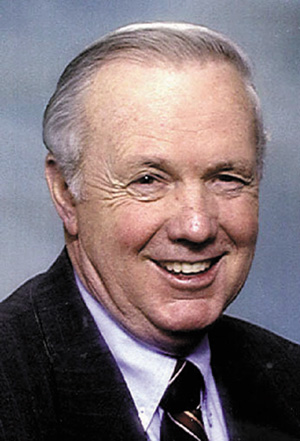No. 683 - A FIRST-HAND PERSPECTIVE ON EVACUEES
No. 683
Jim Davidson -- NEWSPAPER COLUMN
A FIRST-HAND PERSPECTIVE ON EVACUEES
Have you ever found yourself in a real dilemma? This is to say, a situation where you found yourself caught between a rock and a hard place and did not know what you should do, what was right and what was wrong. I received something by e-mail from a friend the other day that gave a first-hand account of a registered nurse who worked as a volunteer in a Hurricane Evacuee Center in Shreveport, La., and found herself in these circumstances. If you can remember Hurricane Gustav that we had on the Gulf Coast in 2008, you will be able to relate to this.
Let me say here in the beginning that the moral of this story and the principles involved have wide application and can be adapted to any natural disaster, be it a fire, flood, earthquake or anything that forces people from their homes for an extended period of time. We can all appreciate that natural disasters are just a fact of life and we will have many more in the months and years to come. It is the attitudes, work ethic and personal outlook of those who find themselves needing help during these trying times that comes into play here, and as I said earlier, sometimes this can pose a real dilemma.
Here is a portion of the true story as written by a registered nurse. “I am a nurse who has just completed volunteer working approximately 120 hours as the clinic director in a Hurricane Gustav evacuation shelter in Shreveport, Louisiana, over the last seven days. I would love to see someone look at the evacuee situation from a new perspective. Local and national news channels have covered the evacuation and the ‘horrible’ conditions the evacuees had to endure during the hurricane.
“True – some things were not optimal for the evacuation and shelters need some modification. At any point, does anyone address the responsibility (or irresponsibility) of the evacuees? Does it seem wrong that one would remember their cell phone charger, cigarettes and lighter, but forgot their child’s insulin? Is something amiss when an evacuee gets off the bus, walks immediately to the medical area, and requests immediate free refills on all medicines for which they cannot provide a prescription or current bottle (most of which are narcotics?)
“Isn’t the system flawed when an evacuee says they cannot afford a $3 co-pay for a refill that will be delivered to them in the shelter, yet they can take a city-provided bus to Wal-Mart, buy five bottles of vodka, and return to consume them secretly in the shelter? Is it fair to stop performing luggage checks on incoming evacuees so as not to delay the registration process, but endanger the volunteer staff and other persons with the very realistic truth of drugs, alcohol and weapons being brought into the shelter?
“Why does it incense me to hear a man say, ‘I ain’t goin’ home till I get my FEMA check,’ when I would love to just go home and see my daughters who I have only seen three times this week. Does it seem odd that the nurse volunteering at the shelter is paying for childcare while the evacuee sits on a cot during the day, as the shelter provides a daycare? Have government entitlements created this mentality and am I facilitating it with my work? Will I be a bad person, merciless person or poor Christian if I hesitate to work at the next shelter because I have worked for seven days being called every curse word imaginable, being threatened and fearing for my personal safety in the shelter?” Signed, Exhausted and bBattered, Sherri Hagerhjeim, RN.”
I will be quick to add, not all evacuees are this way, but sadly, this is what entitlement programs have done to so many of our citizens.
---
(EDITOR'S NOTE: Jim Davidson is a public speaker and syndicated columnist. You may contact him at 2 Bentley Drive, Conway, AR 72034. To support literacy, buy his book: “Learning, Earning & Giving Back.”)
A
